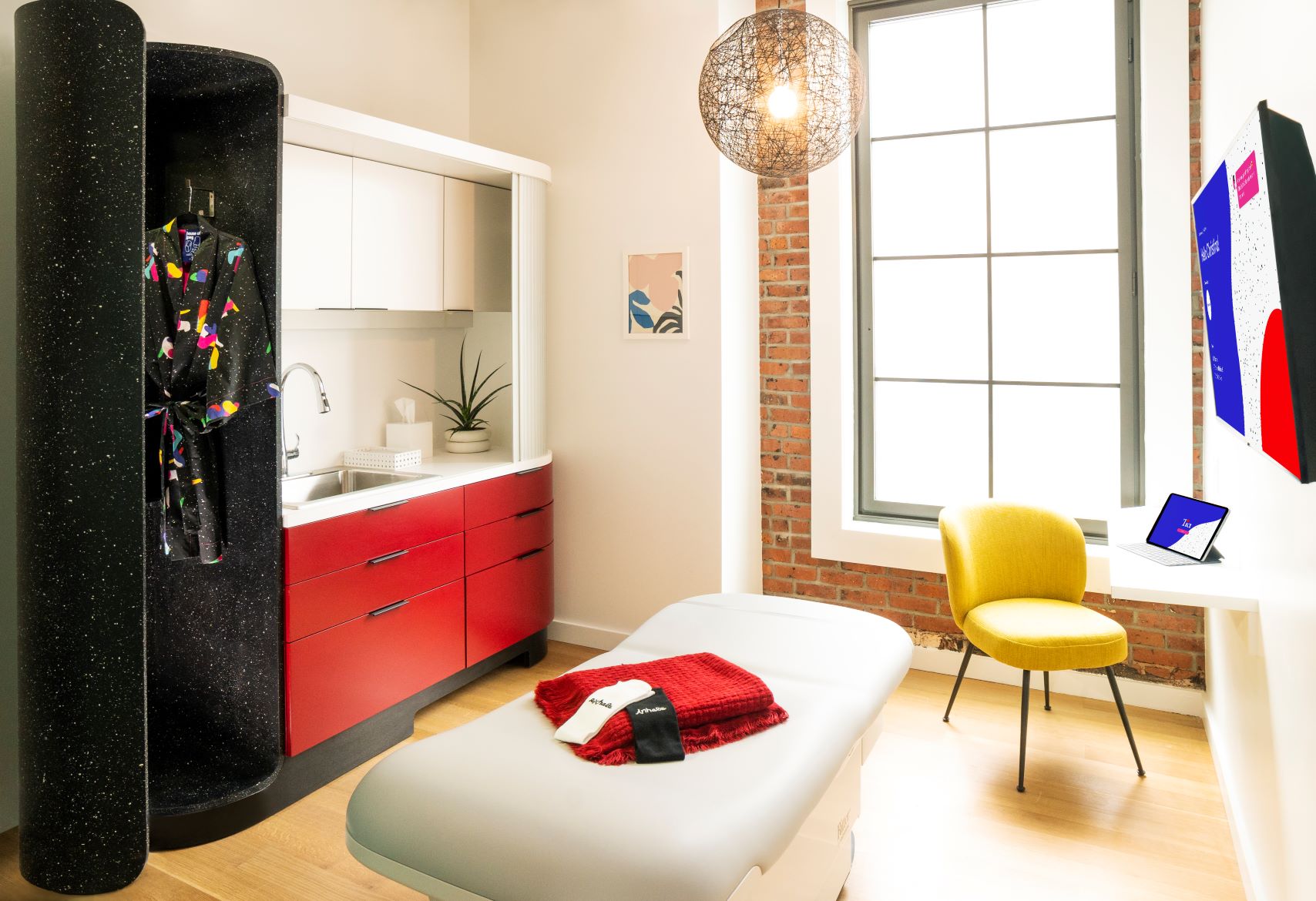
Tia currently has one clinic in New York. It plans to expand to additional markets in the next two years. Photo credit: Tia
Just days before New York implemented stay-at-home orders, women’s health startup Tia closed a $24.28 million series A round. Emily Melton, a managing partner at early-stage venture capital firm Threshold Ventures, led the funding round. Other participating investors included Define Ventures, ACME and Torch Capital.
In a field where many of its peers focus on fertility or pregnancy, Tia has taken a different approach. Co-founders Carolyn Witte and Felicity Yost launched the company in 2015 with a decided focus on gynecology and primary care.
Since the Covid-19 pandemic started, Witte said the last three months have been a “stress test” of Tia’s care model and the company’s expectations for what the future of healthcare might look like.
“It’s a pretty wild time to close a financing round,” Witte said. “We’re really excited about what this means for the future of women’s health and having more firepower to scale our vision.”
Tia says it currently has 3,000 patients in New York. The company has an app where users can track information about their period, birth control, and anxiety or other symptoms they might be experiencing. Tia also has a concierge clinic that it opened in New York last year, where members pay a $150 fee to access same-day appointments and a care coordinator, among other perks.
The clinic is currently staffed by two physicians, two nurse practitioners and two therapists.
With the onset of the pandemic, Tia actually closed its in-person clinic, which it plans to reopen at the beginning of June. Instead, it shifted to virtual appointments, such as consults around birth control, UTIs or PCOS. Many patients also called in with questions about Covid-19, Witte said.
The company also rolled out behavioral healthcare services after several of its patients requested it.
“Why are they turning to Tia for Covid? For mental health? It’s whoever owns that relationship with the consumer. We’ve just seen that, that was validated so many times over in the way women turned to Tia during a crisis in New York City rather than someone else,” Witte said. “The opportunity is to build more personalized care delivery models that are built for people instead of specialties.”
In the future, the company will expand to offer pregnancy care and obstetrics.
Despite the challenges posed to in-person care appointments during pandemic, Witte said she plans to open clinics in two new markets. Why? There are some things you just can’t do online.
“You can’t do a pelvic exam. You can’t deliver a baby,” Witte said. “We believe instead that right model for women’s care is a virtually integrated product that’s online and offline.”
After spending the last three months testing her business, Witte said, “I just have more conviction than ever before about where we’re going and what we’re building.”
Correction: The amount of funding raised was updated to reflect the correct number: $24.28 million.










